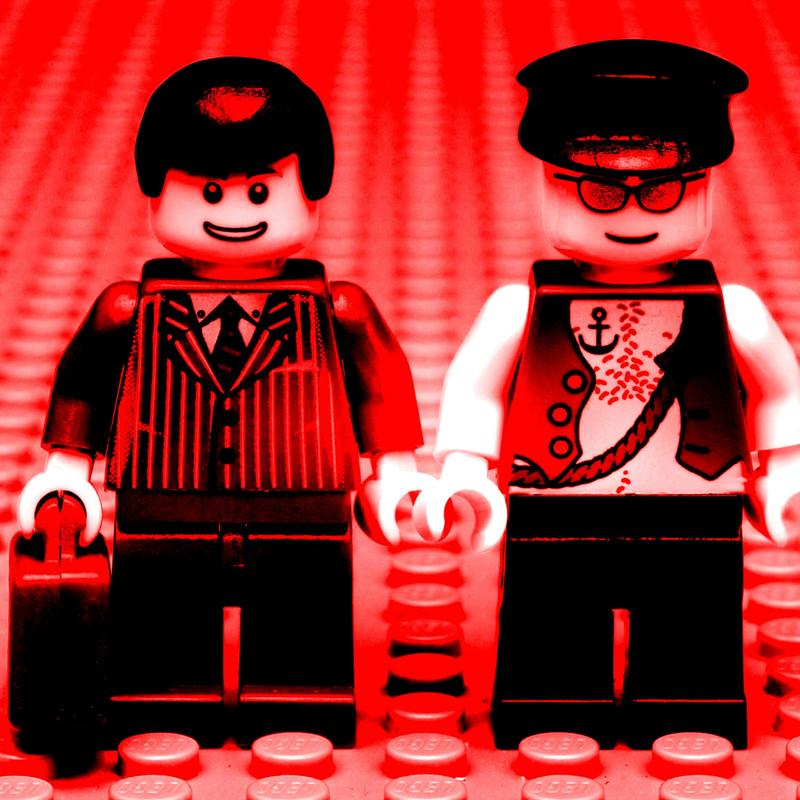BROOKE GLADSTONE: Recently, the Associated Press announced some changes to its influential stylebook. Next year's print edition will urge news writers to avoid the word “phobia,” as in, quote, “Do not use in political or social contexts: homophobia, Islamaphobia.” Dr. George Weinberg, a Manhattan psychotherapist and early gay rights advocate, coined the term “homophobia” in the 1960s. When his book Society and the Healthy Homosexual was published in 1972, being gay was still classified as a mental disorder by the American Psychiatric Association. The real mental illness, he maintained, was not being gay but being phobic about it.
DR. GEORGE WEINBERG: Phobic in the sense that it was unreasoned, it was unhinged and it was unbalanced. It separate families, it sundered people, it make parents weep for children who had nothing wrong with them. Even now that we managed to get the mental health profession, the DSM Manual, to accept homosexuals as not mentally ill, only recently we’ve started to pass laws against the therapeutic community trying to make a homosexual not homosexual.
BROOKE GLADSTONE: So homosexuality is no longer listed in the Manual of Mental Disorders to treat, but is homophobia?
DR. GEORGE WEINBERG: People should be treated for it, but nobody goes to a, a therapist and says, please treat me for my irrational hatred of homosexuals. The way I think of it is if I’m a landlord and I have a five-story building and upstairs there are two gay men or two gay women going to work every day, paying the rent, and I can't sleep at night and I’m trembling and – or maybe get a heart attack or hypertension over their existence, who's got the problem? [LAUGHS] They do, or do I have it?
One of the reasons the AP gave to condemn the word is that it’s political. But what’s political is personal. It was personal when a black hated somebody who took advantage of him or her in a job. It becomes political when a lot of blacks get together and formed the NAACP or some more militant group.
BROOKE GLADSTONE: When the AP objects to using your term, I don’t think they’re necessarily referring to those people who are displaying phobic symptoms.
DR. GEORGE WEINBERG: I’m talking about an extreme. If I say to somebody, look, this child is gonna be adopted by two gay women, and they say, well, isn’t that bad for the child, won’t the child be homosexual, maybe they're uneducated, they’re not trembling or shaking, but if they can't listen to reason, now you're starting to get into something that’s where I use the word “unhinged.” If I say to you, look, I’m gonna teach you some things about algebra you don’t know, that’s ignorance. The minute you start saying, I don’t want to see anything mathematical, don't show me numbers, I can't stand to look at the page, that's “numerophobia.”
BROOKE GLADSTONE: Oh my God! Doctor, do you have any time this afternoon?
DR. GEORGE WEINBERG: [LAUGHS] If you’re anti-gay, you can be talked to. If you’re homophobic, you can’t.
BROOKE GLADSTONE: You don’t object to AP using terms like “anti-gay.” Your feeling is that there are appropriate times to use the word “homophobia” and that AP should not be banning it from its stylebook.
DR. GEORGE WEINBERG: Beautifully put, thank you. Not all rage, not all hatred is phobic, but we have no word coming even close. And part of my objection to banning this word is what other word have you got?
BROOKE GLADSTONE: For this discussion, we have been focusing on the second part of the word “phobia” but let’s take up “homo.” LGBT gender issues don't necessarily involve sex with people of the same sex? Does your term have a limited shelf life because it refers to only a thin slice of this movement, with a prefix that many don't like?
DR. GEORGE WEINBERG: I remember when I was in court I would testify for people who got arrested, and I, I still have this ringing in my ear how the judge or the lawyer would say, “He’s a homo!” It’s certainly true that it's got a very pejorative ring to it as a prefix but in homophobia I want that pejorative ring, so I like it. But I’m sure the word won’t be here in 50 years; there’ll be some other word for it. I don’t mind that it’s leaving if some other good word comes in. I just don’t want it to leave because of some nicety about language, which is really a fear. And in some cases – I won’t say all - it's a homophobic fear that is going to eliminate the word. I think the main reason the AP wants to drop it is because there are places where the AP won’t be picked up if the word is used because they’re homophobic places.
BROOKE GLADSTONE: Well, why don’t we throw it out to our listeners and we’ll see whether or not someone else has a word that they think might last for the ages.
DR. GEORGE WEINBERG: Right. I doubt that any one will list for the ages, but we need a good one now.
BROOKE GLADSTONE: Thanks, Dr. Weinberg.
DR. GEORGE WEINBERG: Thank you very much.
BROOKE GLADSTONE: Dr. George Weinberg is a Manhattan psychotherapist who coined the term “homophobia.” AP declined to speak to us on this issue.
[MUSIC UP AND UNDER]
